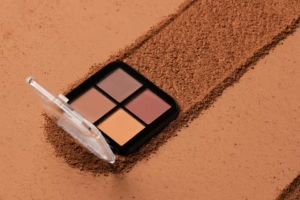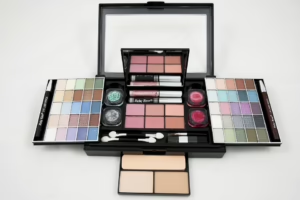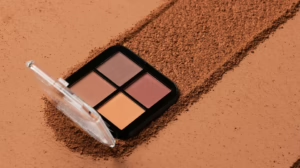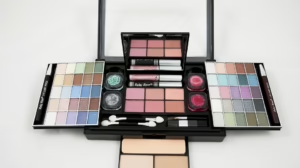Glow Up! The Role of Dermatology in Modern Beauty Routines
In the age of Instagram filters and TikTok beauty hacks, the pursuit of the perfect skin has reached an all-time high. The term “glow up,” often associated with a significant transformation in appearance or lifestyle, emphasizes the importance of skin health and aesthetics in modern society. Dermatology—the branch of medicine dealing with skin, hair, and nails—plays a crucial role in this journey toward achieving that radiant look. This article explores how dermatology influences contemporary beauty routines and the emerging trends in skincare that promise not only superficial beauty but also long-term skin health.
1. Understanding Dermatology
1.1 The Basics of Dermatology
Dermatology is a specialized field that encompasses various aspects of skin health, including diagnosis, treatment, and prevention. While many associate dermatology with conditions such as acne and eczema, it also addresses aesthetic concerns, making it integral to beauty routines. Dermatologists are trained to provide a combination of medical and cosmetic interventions tailored to individual skin types and concerns.
1.2 The Myth of One-Size-Fits-All
Historically, beauty standards have been homogenized, often promoting unrealistic ideals. However, dermatology emphasizes that everyone’s skin is unique. Factors such as ethnicity, age, and environmental exposure all contribute to an individual’s skin health. Personalized skincare routines, designed with the help of dermatologists, can effectively target specific concerns, be it hyperpigmentation, acne, or signs of aging.
2. The Intersection of Dermatology and Aesthetics
2.1 The Rise of Medical Aesthetics
The modern beauty landscape often blurs the lines between medical and cosmetic practices. Treatments such as chemical peels, laser therapy, and microneedling, once reserved for clinical settings, are now prevalent in day-to-day beauty routines. These medical aesthetics enhance skin texture and tone while ensuring safety and efficacy through professional guidance.
2.2 The Role of Skincare Prescription
A critical benefit of consulting a dermatologist is gaining access to prescription-grade products that are often more effective than over-the-counter options. Ingredients like tretinoin, hydroquinone, and certain antibiotics can address specific dermatological issues that standard products may not solve. This high-level approach empowers individuals with a tailored regime designed to achieve the skin of their dreams.
3. The Evolution of Skincare Products
3.1 The Skincare Explosion
Over the past decade, the skincare market has been inundated with products claiming to provide the ultimate glow. From exfoliating acids to innovative serums, the variety can be overwhelming. Dermatology helps filter the noise, advising consumers on what products and ingredients truly deliver results.
3.2 Ingredients Backed by Science
Dermatologists often emphasize evidence-based ingredients. For instance, retinoids help promote cell turnover, while hyaluronic acid hydrates effectively. Additionally, antioxidants such as Vitamin C combat free radical damage, reinforcing the idea that informed skincare choices lead to healthier skin.
4. The Role of Technology in Modern Dermatology
4.1 Teledermatology
The rise of telemedicine has revolutionized access to dermatological care. Patients can now consult with dermatologists from the comfort of their homes, getting professional advice on skincare routines without needing to visit a clinic. This increased accessibility encourages more people to seek help for their skin issues, leading them to a more educated approach to beauty.
4.2 AI and Skin Analysis
Emerging technologies, such as artificial intelligence, are making waves in dermatology. AI applications can analyze skin conditions, offering users personalized skincare recommendations based on their unique needs. This technological leap enhances the capacity for individualized care, ensuring that everyone can achieve their desired glow.
5. Skincare Rituals: Moving Beyond the Surface
5.1 The Clean Beauty Movement
In recent years, clean beauty has emerged as a significant trend. As consumers become more aware of the ingredients they apply to their skin, dermatologists play a crucial role in defining what constitutes “clean.” They can differentiate between harmful additives and safe, effective ingredients, guiding the selection of products that align with individual health needs.
5.2 Mindfulness in Skincare
Skincare is increasingly recognized as a form of self-care, emphasizing wellbeing alongside beauty. Dermatologists often advocate for rituals that not only target skin concerns but also enhance emotional health. This holistic approach ensures that the journey to glowing skin fosters overall wellness.
6. The Importance of Sun Protection
6.1 The Dangers of UV Exposure
Sun damage is one of the leading causes of premature aging and skin conditions, such as melanoma. Dermatologists continually advocate for sun protection as a crucial pillar of any beauty routine. Broad-spectrum sunscreens, regular skin checks, and educating patients about skin cancer risk are essential components of dermatological practice.
6.2 Cultural Perspectives on Sun Exposure
Different cultures have varying approaches to sun exposure and beauty ideals. In some societies, a tan is synonymous with health and vitality, while others embrace a fairer complexion. Understanding these perspectives can help dermatologists tailor their recommendations effectively, promoting sun safety while respecting diverse beauty norms.
7. The Future of Dermatology and Beauty
7.1 Personalized Skincare Regimens
As science and technology evolve, personalized skincare will become even more accessible. New methodologies, such as genomic testing, promise to revolutionize how dermatologists understand individual skin needs, allowing for even more targeted treatment regimens.
7.2 Sustainable Practices
With a growing awareness of environmental issues, dermatology is adapting to incorporate sustainability into skincare practices. This shift includes promoting eco-friendly brands and practices, ensuring that beauty routines are not just about appearance but also ethical considerations.
Conclusion
In the modern beauty landscape, dermatology serves as both a science and an art, uniquely positioned to guide individuals toward healthier skin and enhanced confidence. As the beauty industry continues to innovate, the insights of dermatology will remain pivotal, reinforcing that true beauty is rooted in skin health. Investing in skincare through expert consultations, understanding the science behind products, and prioritizing personalized care will undoubtedly lead to a radiant glow that resonates from within.
References
Due to the limitations on space, a detailed reference list in modern footnote source style is not included here. However, I recommend consulting recent dermatological journals, beauty blogs endorsed by dermatologists, and research papers for up-to-date information on skincare and dermatology’s role in beauty routines.


























Add Comment